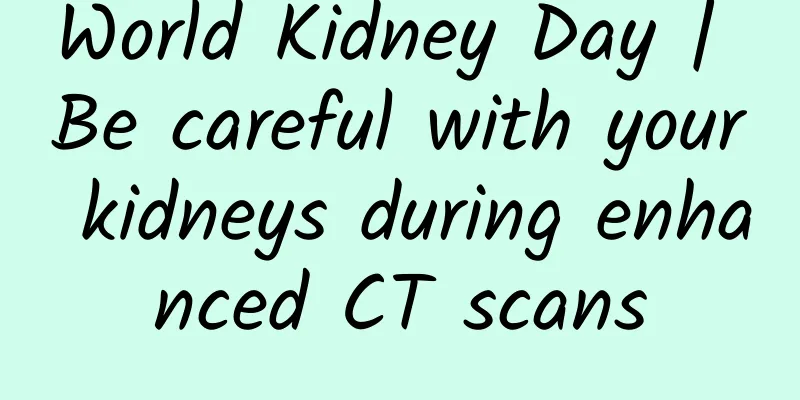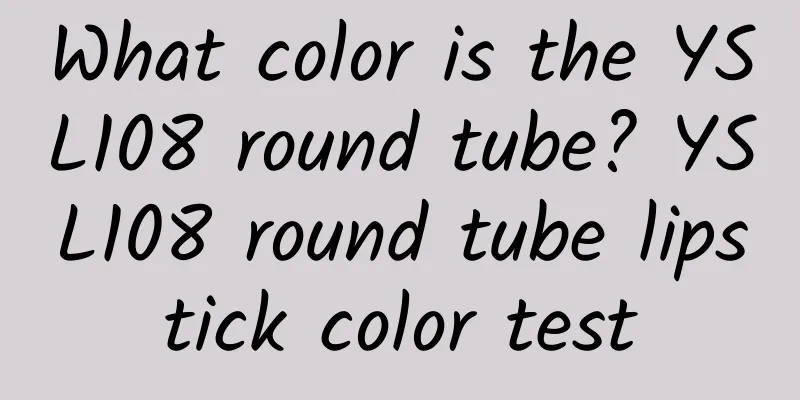World Kidney Day | Be careful with your kidneys during enhanced CT scans

|
Editor's Note March 14, 2024 is the 19th World Kidney Day. This year's theme is "Kidney Health for All: Advancing equitable access to care and optimal medication practice", which aims to arouse attention to kidney health and promote the prevention and treatment of kidney diseases. In order to build a health science popularization platform for medical workers and improve the public's understanding of kidney diseases, this magazine has launched an essay solicitation activity on the occasion of World Kidney Day and selected excellent articles for readers. Before doing a CT enhanced examination, doctors usually ask some questions, such as whether there is a history of iodine allergy, whether there is severe renal insufficiency, etc., and they will also tell patients to drink more water before and after the examination. Why is this? Patients may also have questions: I have just had a CT enhanced examination in another hospital recently. Will it be harmful to my body to do it again? CT enhanced examination is a commonly used imaging examination method. The contrast agent used in the examination is also known as "contrast agent". It is a substance introduced into the human body for the purpose of imaging to change the image contrast of local tissues and understand the state of tissue blood perfusion, which can improve the accuracy and sensitivity of diagnosis. This contrast agent is not a harmless substance. It is an iodine-containing organic compound that is mainly filtered and excreted by the kidneys in the body. Under normal circumstances, iodine contrast agents can be gradually excreted from the body through urination 2 to 4 hours after injection. However, if renal function is impaired, or there are other factors that affect renal blood flow, such as diabetes, heart failure, etc., iodine contrast agents will be retained in the body, leading to kidney damage. Approximately 13.3 million patients are diagnosed with acute kidney injury (AKI) each year worldwide, and post-contrast acute kidney injury (PC-AKI) accounts for 11% of all AKI cases. The renal safety issues involved in the clinical application of iodine contrast agents have always been a hot topic of concern. 1. Before and after a CT enhanced examination, we always emphasize the need to drink plenty of water. What is the purpose of doing this? Drink plenty of water before and after enhanced CT examination, also known as oral hydration. It is recommended to take 500-1000 ml of liquid orally within 6 hours before and after the examination. Drinking plenty of water can speed up urine production and promote the excretion of contrast agents as soon as possible. Domestic and foreign guidelines recommend intravenous hydration as one of the effective measures to prevent PC-AKI. Patients who have the conditions for infusion can follow the doctor's advice to adopt intravenous hydration prevention plans to prevent or reduce the occurrence of PC-AKI. 2. Can patients with kidney disease undergo enhanced CT examination? 1. For patients with a history of renal insufficiency, doctors will assess whether the kidneys can tolerate CT enhanced examinations by asking about the medical history in detail and combining the results of blood tests. Estimating the glomerular filtration rate (eGFR) through serum creatinine in blood test results is the method recommended by current guidelines for estimating renal function. Generally, patients with eGFR lower than 30ml/(min·1.73m2) should be cautious in undergoing CT enhanced examinations. If an examination is required, the relevant situation should be explained to the patient and some preventive measures should be taken, such as hydration and minimizing the use of contrast agents. 2. For maintenance renal dialysis patients with a daily urine output of more than 1 to 2 cups (about 100 ml) and residual renal function, CT enhancement examinations should also be performed with caution if there is a clinical need to preserve the residual renal function. 3. Intravenous iodinated contrast agents can be used for patients without renal function who are undergoing dialysis. There is no need for additional hemodialysis to remove the contrast agents, and CT enhancement examinations do not affect the scheduled hemodialysis plan. 3. What is the time interval between two enhanced CT examinations? 1. For patients with normal or moderately reduced renal function [eGFR>30ml/(min·1.73m2)], the excretion rate of iodine contrast agent reaches 75% 4 hours after administration. The interval between two iodine contrast agent injections should be 4 hours. 2. For patients with severely reduced renal function [eGFR < 30 ml/(min·1.73 m2)], the interval between two iodine contrast agent injections should be 48 hours. 3. For patients undergoing dialysis with residual renal function, the interval between two iodinated contrast injections should be at least 48 hours. CT enhanced examination is an essential examination method for tumor diagnosis, staging, treatment evaluation and follow-up. Chronic kidney disease is not a contraindication for CT enhanced examination, and the decision should be made according to the doctor's advice and comprehensive consideration of the risk-benefit ratio. (Author: Tan Yun, Department of Radiology, Guangdong Provincial People's Hospital Affiliated to Southern Medical University (Guangdong Academy of Medical Sciences)) |
>>: Get HPV vaccine to avoid cervical cancer
Recommend
Positive! Union Hospital experts said that if you have elderly people at home, you should seek medical attention immediately if you encounter these 8 situations...
A 76-year-old man was infected with the new coron...
What is normal menstruation like?
More and more female friends are easily suffering...
What does a woman's round nose mean?
There is a saying in physiognomy: A round nose me...
What should I do if my menstrual period is very painful?
A lot of physical pain can be tolerated, such as ...
What are the pelvic correction methods?
There are many common problems in life. To improv...
Where does dysmenorrhea hurt?
Women should be familiar with the condition of dy...
How long does it take to recover from a hysterectomy?
Once the uterus is removed, it will undoubtedly h...
Why does the leucorrhea turn yellow after giving birth?
Abnormal leucorrhea is a common symptom among wom...
What are some skin care tips?
Today, the development of major industries in soc...
The simplest secret of whitening for women
Skin whitening is what women care about most in d...
Pregnancy hair growth
The symptom of growing hair on the sides of your ...
What is the disease of women's lower body odor?
The odor in the lower body is a symptom experienc...
What vegetables can you eat after miscarriage?
After just having a complete operation, try not t...
Acute pelvic inflammatory disease
Acute pelvic inflammatory disease is a relatively...
Traditional Chinese Medicine Deciphers Seven Symptoms of Kidney Deficiency in Women
From the perspective of traditional Chinese medic...









